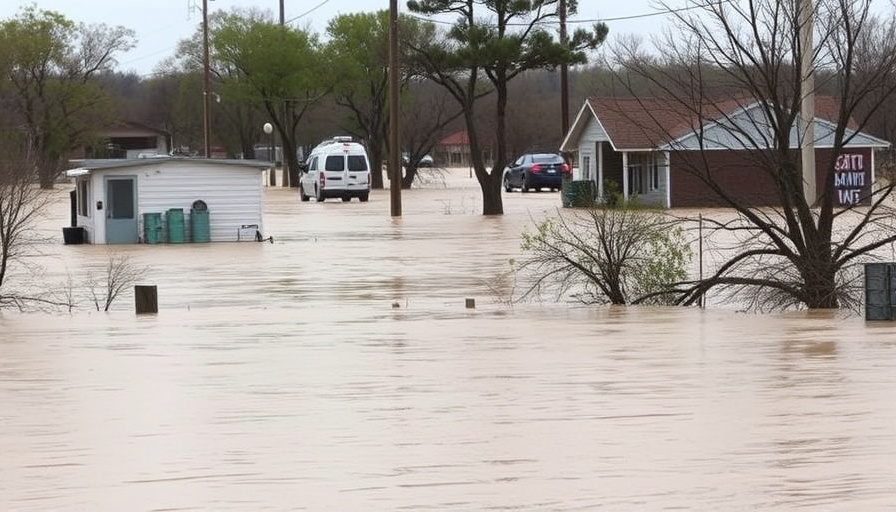
The Tragic Events of July 4: Understanding the Flood's Impact
In early July 2025, Central Texas experienced a catastrophic flood that took 130 lives, including 27 young campers from Camp Mystic. This disaster not only devastated families but also raised serious concerns regarding the preparedness of the state in handling natural disasters. Following this tragedy, Texas lawmakers have taken significant steps by establishing two investigative committees aimed at addressing the failures in response and planning related to the floods.
New Committees Formed for Accountability
Tx lawmakers, led by Lt. Gov. Dan Patrick and House Speaker Dustin Burrows, have instituted joint Senate and House General Investigating Committees specifically to delve into the events surrounding the floods. These committees will scrutinize the response capabilities of various agencies and assess the actions taken at summer camps during the disaster. Members include both Republicans and Democrats, signifying a bipartisan effort to address this ongoing crisis and enhance future disaster preparedness.
The Role of Camp Mystic in the Investigation
As the investigation unfolds, Camp Mystic has come under intense scrutiny. Reports indicate that the camp has not publicly communicated what exactly transpired during the flood, leaving many families demanding answers. Critically, a plan had been announced for the camp to reopen its Cypress Lake location, which has led to outrage among the victims' families. Lt. Gov. Patrick expressed dismay over the camp's decision, emphasizing the need for a thorough investigation before any plans for reopening are finalized.
Political Perspectives and Implications
The formation of these committees goes beyond just accountability; it reflects a broader political response to natural disasters that have historically plagued Texas. Experts argue that enhanced legislation is required to ensure better flood management and state preparedness. Some recent flood-related bills, passed during a special legislative session, aim to improve safety regulations at youth camps and streamline disaster response protocols.
Lessons from Historical Flooding
The July 4 floods are not an isolated incident; Texas has a history of flooding that has often been met with inadequate preparations. Previous natural disasters led to emergency responses that were criticized for their inefficacy, emphasizing the critical need for a reevaluation of current disaster preparedness strategies. The loss of lives in these events heightens the urgency for systemic changes in how such situations are handled.
What Lies Ahead for Disaster Management in Texas
As Texas lawmakers aggressively pursue inquiries into this disaster, the future of disaster management looks to be in a state of flux. The committees' findings could lead to substantial changes in policies governing emergency preparedness and response. Moving forward, officials hope to ensure that Texans are better protected against such devastating events, fostering a safer environment for residents, especially the vulnerable young population.
Local News and Community Engagement
The impact of these investigations reaches beyond politics and legislation; it connects to the community's desire for safety and accountability. As discussions on disaster preparedness unfold, local news outlets, including Dallas local news channels, are playing a crucial role in keeping residents informed and engaged. Understanding local responses and potential changes will empower the public to hold authorities accountable.
Call to Action: What Can You Do?
As Texas navigates these critical committees and their implications, residents can stay informed by following local news in Dallas and other platforms reporting on these developments. Engaging in community discussions and advocating for necessary changes locally can enhance disaster preparedness and safety measures throughout the state.
 Add Element
Add Element  Add Row
Add Row 



Write A Comment